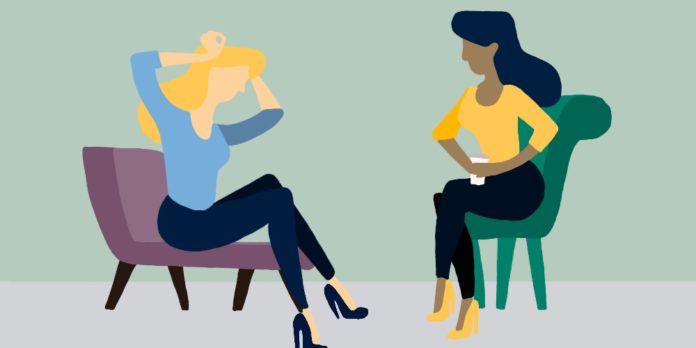Friends are there to support you through the rollercoaster of life; however, they should not be expected to fix your emotional and mental health issues.
This culture of relying on loved ones to fill the role of a personal mental-emotional health professional or counselor is a toxic one. It puts unfair expectations and responsibility on loved ones and can strain relationships. No friend or significant other should feel emotionally responsible for you, and no one should feel like their emotional or mental health or stability is based off another person.
Odds are, if someone really cares about you, they will be there for you when asked or needed — it’s hard to say no to people you care about even if it can become damaging to your own mental health. In relationships and friendships, think about how it may affect the person you are relying on.
Venting and getting stuff out or expressing yourself emotionally is one thing, but go into conversations knowing that you are either capable of handling something yourself or that you may actually need help — and serious help should not be expected to come from friends.
It’s unfair to expect friends and significant others to play such a crucial role in your mental and emotional health. It can negatively affect them, and it also won’t be the best help for you. No matter how much they care, friends will have a hard time being fully there for you with the focused and constant support you need because they may also have things going on in their own life that they’re focusing on or going through. You can’t pour into someone’s life fully if you are still trying to fill up your own.
For serious issues, trained and experienced professionals are the ones who can truly help you. Your college friends in their 20’s aren’t going to be able to adequately give you real advice or counseling catered to your situation.
There are professionals who are passionate helping people through mental and emotional health issues. They have been trained to look at your situation with a proper perspective and studied practices to help you move forward. Friends can only offer perspectives and their own thoughts, while professionals are certified and have studied mental and emotional health and how to improve it and help each other through it.
Mental health specialists are typically required to have an advanced degree, clinical experience or even pass a national or state examination in order to gain certification or licensure to practice professionally. Your friends are not trained, licensed or prepared to help you the way a professional could. Additionally, they’re not trained or may not know how to help you without it being degenerative to themselves or weigh on them.
The resources for mental health help are abundant and multiplying. There are crisis text lines, governmental help lines and local resources wherever you are, such as the Baylor Counseling Center or organizations that include local support groups and health centers like Ascension Providence.
Talking to a friend may feel better, but some internal issues can’t be resolved through conversation or dialogue with a friend who cares. This could possibly breed resentment on either parties’ end and create animosity. Excessively ranting or fueling negativity with friends and lack of solutions can perpetuate the issue and actually be more detrimental than it is helpful — to everyone involved.
Distinguish what is appropriate to confiding in friends versus what is over reliance or dependence. Talking about your problems and what you’re going through is OK — it’s actually really good — but if it is something that seems out of the realm of an average person’s ability, seek professional help. That can sometimes be the most caring thing you can do for a friend.






